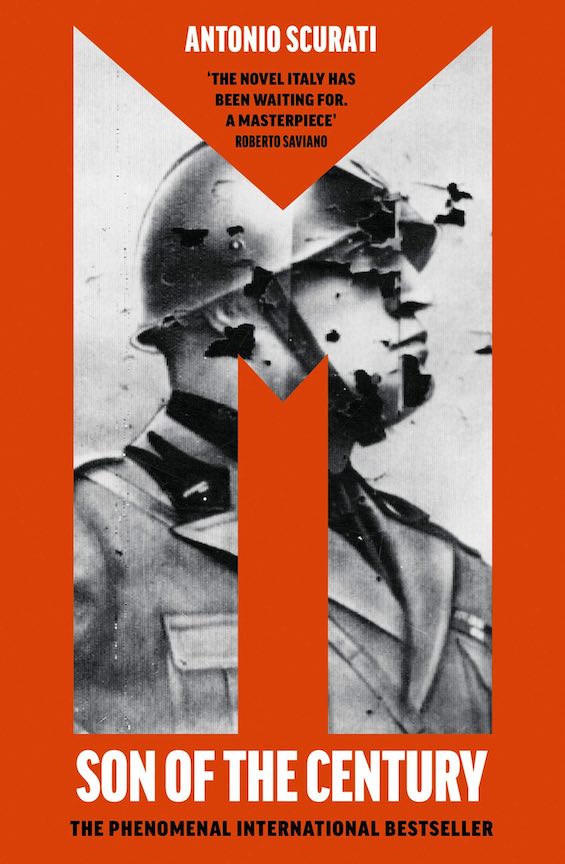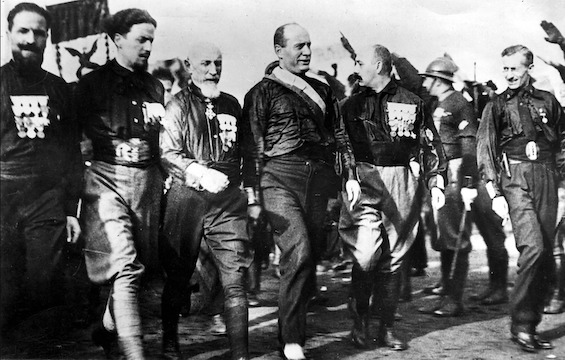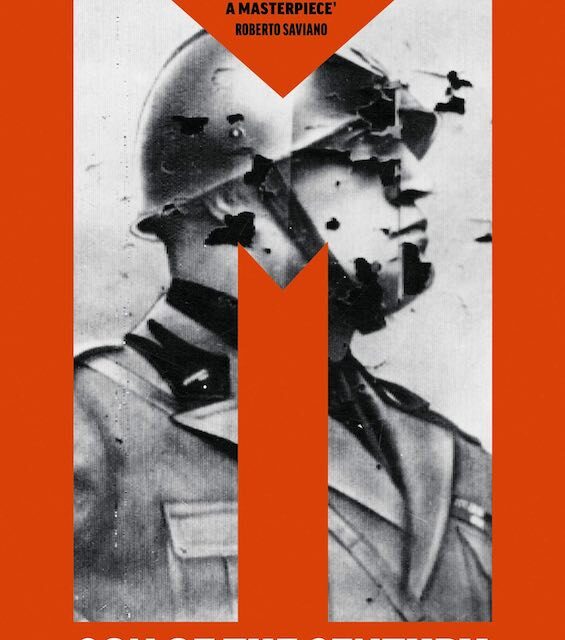
On October 31, 1922, he entered office as the Prime Minister of Italy. He was 39 years of age. In the 1921 general election, his party, then known as the Fasci Italiani di Combattimento, had received 29,549 votes out of 6.7 million cast. How, then, did this ex-soldier, a corporal in the Italian Army in World War I, rise to head the government of one of Europe’s largest nations a single year after that election? Therein lies the extraordinary tale Antonio Scurati tells in M: Son of the Century. The book, half-journalism, half-fiction, is tantamount to a biography of Benito Mussolini.
Estimated reading time: 6 minutes
A fictionalized biography of Benito Mussolini
Mussolini was a veteran of nine months in the trenches on his country’s northern border in its war against its erstwhile ally, the Austro-Hungarian Empire. He was a journalist, the combative editor of the revolutionary Socialist newspaper, Avanti. But when he advocated Italy’s entry into the war in 1914, the Socialist Party had expelled him. And when the war ended four years later, Mussolini began building a base among the arditi—former front-line assault troops—and other “interventionists” in opposition to the Left. With funding from a wealthy industrialist, he established a new, Right-Wing newspaper, Il Popolo d’Italia, and used it to expound the confused and often contradictory political program he called fascism.
M: Son of the Century by Antonio Scurati (2022) 785 pages ★★★★☆

Mussolini’s fist six years in the public eye
M: Son of the Century devotes nearly 800 pages to the first six years of Mussolini’s rise to power. The novel opens in 1919, when he launched the fascist movement with a tiny coterie of bitter ex-soldiers. It draws to a close in the middle of 1924, when Mussolini brilliantly outmaneuvered his parliamentary opposition as they were on the verge of deposing him. From then on, we’re led to believe, Mussolini was unchallenged as “the only man who mattered” in Italy. In fact, Scurati has written a sequel, M. L’uomo della provvidenza, which takes Mussolini’s story from 1925 to 1932, but it has not (yet?) been translated into English. Perhaps subsequent volumes will tell the tale all the way to the dictator’s ignominious end in 1945.
Unfortunately, Scurati’s book doesn’t read like a novel. Instead of selecting a few key individuals to follow throughout those six years, he chooses to build a cast of characters numbering in the hundreds. Many hundreds. Some, perhaps a few dozen, characters merit mention repeatedly throughout the story. But there are so many of them, and they appear in the context of hundreds of other names, that only a few emerge as identifiable personalities. Scurati names innumerable fascist activists and squadristis (action squad members). Perhaps Italians versed in their country’s history would recognize names such as Michele Bianchi, Italo Balbo, Cesare Rossi, and Emilio De Bono. I didn’t. Other, better-known characters are present too. The poet Gabriele D’annunzio. King Victor Emmanuel III. Communist theoretician Antonio Gramsci. And Socialist politician Giacomo Matteotti, whose murder at the hands of Mussolini’s thugs nearly brought down his government. But even these prominent figures fail to emerge fully fleshed.
Much more than a pompous clown
We Americans tend to view Mussolini as a pompous clown, Adolf Hitler’s bumbling, self-important junior partner in the Second World War. It’s hard to conclude otherwise viewing old newsreels of Mussolini’s bombastic speeches full of histrionic gestures. But Scurati paints a far more complex picture of the man who launched the first wave of fascism on the European continent and set the pattern that Spain and Germany would later follow. He was, the author notes, leading “a war of those with nothing to lose against those with everything to lose.” In the context of his time, perhaps his rise was foreordained.
It’s clear that Mussolini was, in fact, extremely intelligent. He was a consummate politician, capable of arousing his supporters to action while disarming his enemies. And his political instincts rarely deserted him. More often than not, when Mussolini ran into trouble, the fault lay at the feet of the homicidal thugs he had attracted to the fascist movement. Scurati repeatedly describes him as “the blacksmith’s son.” Mussolini is “a gypsy in politics, self-taught at power.” But the man clearly learned how to maneuver through the thickets of Italy’s famously fractured political system. And he was clearly his own man, repeatedly rejecting the often-urgent advice to take bold action when his best interest, and that of his movement, lay in sitting still. Niccolò Machiavelli could have done no better.
The evolution of fascism from Left to Right
As an ideology, fascism under Mussolini’s direction was a work in progress. In the early years of the movement (1919-21), the Duce, or leader, made strenuous efforts to ally with the minority of those in the Socialist Party who had, like him, backed intervention in World War I. Only when that gambit failed, and he was unsuccessful in gaining support from Socialist workers in Milan, where Mussolini and the movement were based, did he move steadily to the right. Fascism took off in 1921 and 1922 when large rural property holders and urban industrialists devoted ever larger sums to him as a bulwark against socialism and communism. Mussolini was, above everything else, an opportunist. As Scurati imagines the Duce’s thinking, Fascists “can and must afford themselves the luxury of being reactionary or revolutionary, depending on the circumstances. They promise nothing and will keep their promise.” Mussolini’s creed, as Scurati saw it, was to “Negotiate with everybody. Betray everybody.” And the facts seem to support that description.
A decade later, when Hitler showed promise of defeating the Left and rising to power in Germany, the cream of Germany’s industrial elite backed him with the money to cement his victory. So it was in Italy, too. Mussolini and his movement gained purchase in Italian politics only when the country’s leading industrialists began funneling large sums of money in his direction. Edoardo Agnelli (Fiat). Camillo Olivetti (business machines). Giovanni Pirelli (tires). And many others who were less well known. Mussolini would have gone nowhere without help from them and other leading Italian businessmen.
About the author

Antonio Scurati is one of Italy’s most esteemed writers. He is the author of nine novels and six books of essays. Scurati was born in 1969 in Naples and educated at the University of Milan and the School for the Advanced Study of the Social Sciences in Paris. He holds a PhD in theory and text analysis from the University of Bergamo. He currently teaches creative writing and rhetoric at the IULM University of Milan.
For more reading
You might find more great reading at:
- 20 most enlightening historical novels
- Great biographies I’ve reviewed: my 10 favorites
- The 10 best novels about World War II
- Top 10 great popular novels reviewed on this site
- 20 top nonfiction books about history
And you can always find my most popular reviews, and the most recent ones, plus a guide to this whole site, on the Home Page.


























